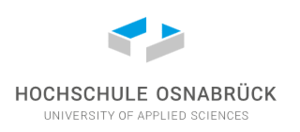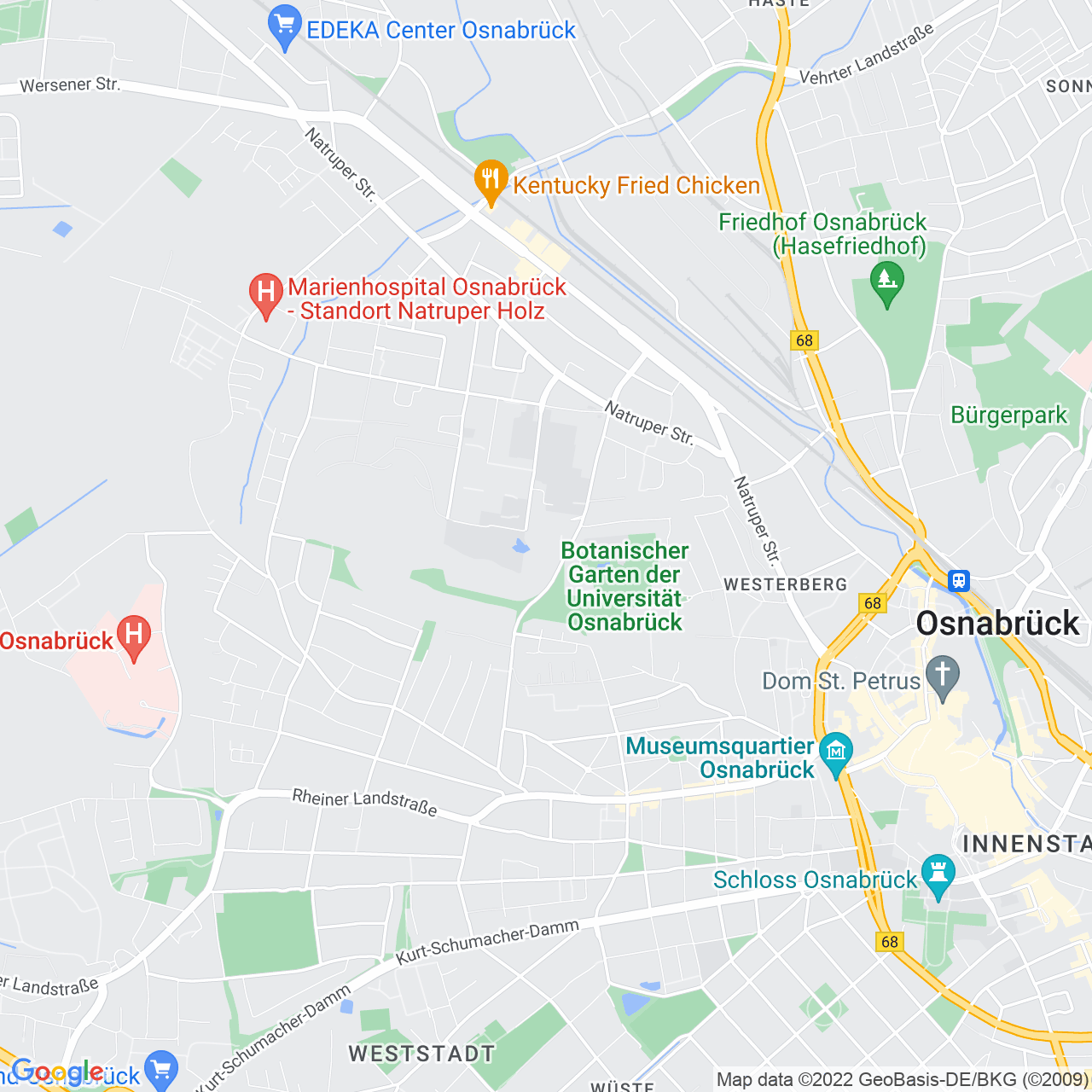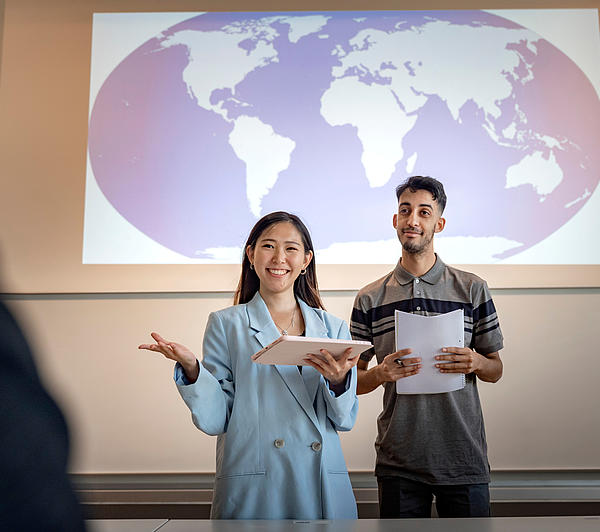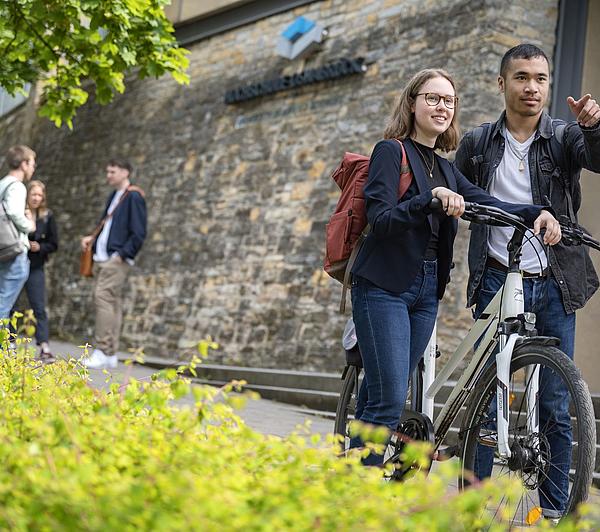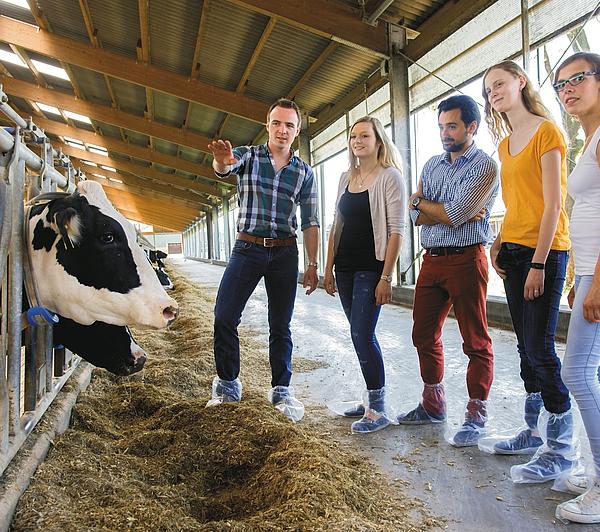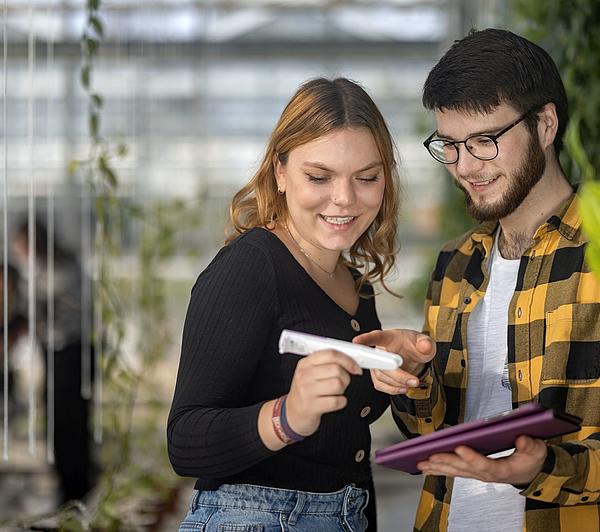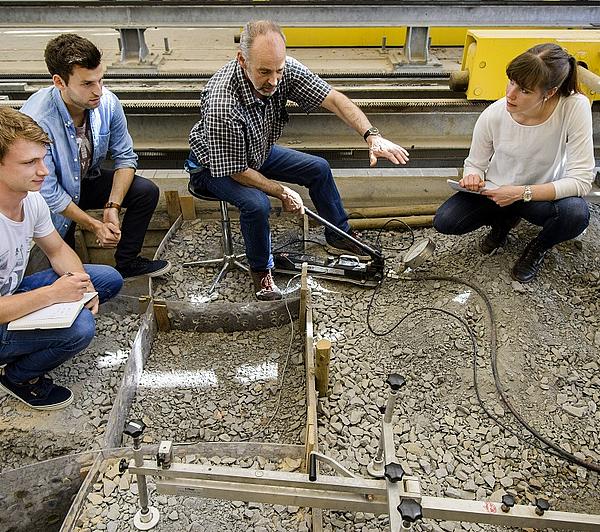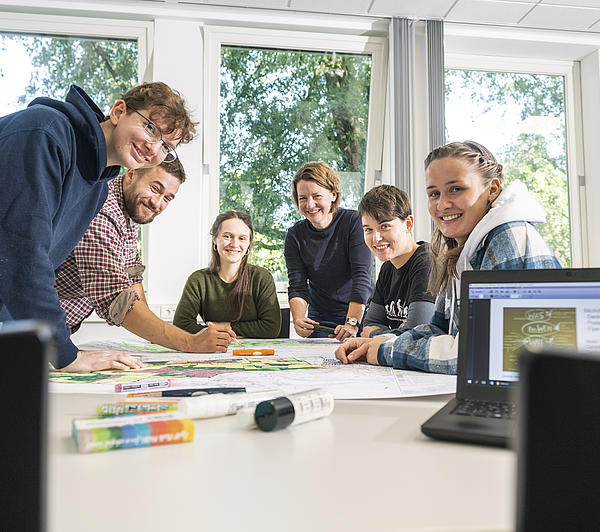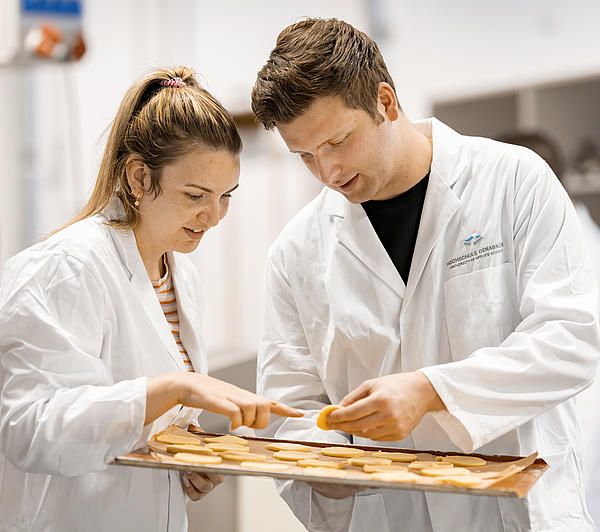Up-to-date management knowledge
You would like to study in Germany and at the same time prepare for an international career? To achieve this goal, studying International Business and Management M.A. at Osnabrück University of Applied Sciences could be the ideal option for you:
- Through the international curriculum, our graduates are well prepared for specialized and leading positions in international companies and organisations.
- Both German and international students from all over the world study together in intercultural teams.
- Students can opt to study abroad for a semester or even pursue a dual degree.
- The program can be studied completely in English language.
- Lecturers with international experience provide for in-depth insights into current international business and management issues.
- The master program has a strong practical orientation, which is manifested through practice-related assignments or lecturers who have previously worked in international companies.
The Faculty of Business Management and Social Sciences is a member of EFMD Global. EFMD (European Foundation of Management Development) is a network of business schools and corporations dedicated to enhance excellence in management education and development globally.
Overview
Location: Osnabrück, Germany
Degree: Master of Arts (M.A.)
Program type: Censecutive Master's program
Standard duration: 4 semesters
Start of program: Winter semester (September)
Application period: February 1st until April 15th (Non-EU citizens), May 1st until July 15th (German and European citizens)
Language: English
Costs: Administrative charges (semester fees): approx. 350 Euro per semester covering inter alia the costs of the semester ticket
option: semester abroad and dual degree
Structure of the program
The duration of the Master's program International Business and Management is 4 semesters. This corresponds to 120 ECTS credits for the whole program and 30 ECTS credits for each semester. Each module is worth 5 ECTS credits, the Master's thesis is worth 30 ECTS credits.
The modules of the program are grouped into the following categories:
- General Competences: The main focus of these modules is the training of soft skills, which have been tailored especially to the requirements of this international Master program.
- Key Competences: The major study area International Business Management characterises the Master program by combining the two central aspects of these studies: management competences and internationality. The modules are designed to cover a broad range of relevant competences for management positions in international companies or organisations.
- Specializations and Electives: Students choose one specialization and two electives from the offer at the faculty of Business Management and Social Sciences according to their individual interests and professional goals. Additional electives are optional. Each elective is composed of three modules. The two electives “Innovation and Transformation” and “Consulting” are offered in English language, while the other electives are offered in German.
The study plan provides a general overview:
How to apply
The Master program International Business and Management starts every winter semester (end of September).
Application periods
- February 1st until April 15th (for non-EU citizens – passport holders of non-EU countries) and
- May 1st until July 15th (for EU citizens – holders of a EU passport)
Before applying for the program, please create an account in the online application portal of Hochschule Osnabrück. After a sucessfull online application, all documents must be sent by post. Please do not apply at uni-assist e.V..
Admission requirements
The requirements for admission to the Master program International Business and Management are:
- Recognised undergraduate degree in a Business Management, Economics or in similar subject with at least 180 ECTS credit points
- Study competence in English at C1 level and in German at A1 level
In addition to these central criteria, we will assess other aspects in the selection process, such as work experience, internships, scholarship, exchange semesters or extracurricular and social activities. Commitments and activities outside of your studies will only be taken into account if you provide the corresponding proof.
Please find the details of the admission criteria here >
This is what the Osnabrück University of Applied Sciences stands for
The Osnabrück University of Applied Sciences has a high reputation in the region and far beyond. It is the largest and highest performance university of applied sciences in Lower Saxony. Four faculties (Agricultural Sciences and Landscape Architecture, Engineering and Computer Science, Management, Culture and Technology in Lingen, as well as Business Management and Social Sciences) and the Institute of Music form the backbone of the university at the two locations in Osnabrück and Lingen.
With around 110 degree programs, the Bachelor's, Master's and advanced training levels is truly comprehensive. Our university has been a pioneer in many areas of academic training – in the establishment of new degree programs, for example – and has thus earned the reputation of being an innovative and progressive institution of higher education. Now with 13,700 students (as of dec. 2016), our ever-growing university has reached an impressive size. Nonetheless, it has cultivated and maintained the character of a familiar and personal place of teaching and learning.
Lower Saxony's leader in research among universities of applied sciences
The university has a noteworthy research orientation. It is committed to the approach of a "University of Applied Sciences". That is, the university is actively involved in society and sees research as an essential contribution to practically assist in solving socially relevant issues. It places great emphasis on a close dialog with its economic, social and political environment. "Healthcare services research, care management and informatics in healthcare", "Pioneering agricultural system technologies", "Innovative materials and material technologies" as well as "Energy systems, management and law" are four of the profile-defining research concentrations.
With the establishment now of five domestic research priorities on the issues of inclusion, the energy supply of the future, urban agriculture, musician's health and organizational communication, the university provides considerable impetus for cross-disciplinary research. The domestic research is funded through internal funds alone.




